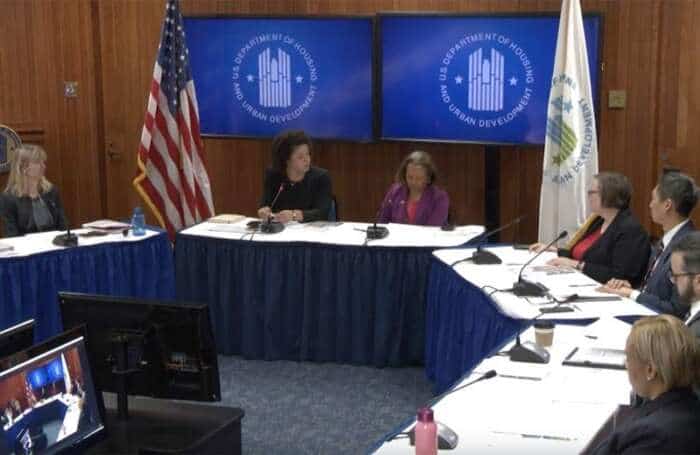Housing affordability and homelessness continue to be pressing issues in the United States, but the U.S. Department of Housing and Urban Development (HUD) has unveiled a possible solution with the proposed HUD FY24 budget, which includes significant investments to address the issue and reduces inequality in housing and homeownership.
The U.S. Department of Housing and Urban Development (HUD) has released its fiscal year 2024 budget proposal, which lays out a comprehensive plan to address the country’s housing crisis, and enhance affordability and accessibility of housing. The budget request comes with a significant investment of $65.1 billion, an increase of 15% over the 2023 enacted level, and is aligned with Administration priorities of ensuring housing for all, reducing poverty, and expanding economic opportunity.
Assistance & Mobility for Low-Income Families
The budget proposes $32.7 billion for the Housing Choice Voucher (HCV) Program, an increase of $2.4 billion from the previous year, to maintain services for currently assisted families and expand assistance to an additional 50, 000 households.
The program will also offer mobility-related supportive services worth $25 million to provide low-income families with more options to move to higher-opportunity neighborhoods. The budget additionally includes $1.8 billion for the HOME Investment Partnerships Program (HOME), which would construct and rehabilitate affordable rental housing and provide homeownership opportunities. The proposed budget also provides $258 million for the elderly and persons with disabilities, supporting the Administration’s priority to maximize independent living for people with disabilities.

Ending Homelessness and Providing Support
To prevent and reduce homelessness, the budget proposes $3.7 billion, an increase of $116 million over the 2023 enacted level, for Homeless Assistance Grants, renewing needs, and expanding assistance to approximately 25, 000 additional households. The Budget also provides $505 million for Housing Opportunities for Persons with AIDS, serving a population with a disproportionately high rate of homelessness and providing critical links to services.
Housing Discrimination, Homeownership Opportunities

The budget also aims to expand access to homeownership for underserved borrowers, including first-time, low- to moderate-income, and minority homebuyers.
It will do so by reducing the annual mortgage insurance premiums new borrowers will pay by about one-third, which will save the average FHA borrower approximately $800 in the first year of their mortgage loan. It also includes $100 million for a HOME down payment assistance pilot to expand homeownership opportunities for first-generation and/or low-wealth first-time homebuyers and $15 million to increase the availability of FHA small balance mortgages.
Final Thoughts
HUD says its FY24 budget proposal represents a significant investment in addressing the housing crisis and promoting equity in housing and homeownership. The plan aims to increase affordable housing supply, enhance household mobility, combat housing discrimination, and end homelessness. If enacted, the budget will contribute to achieving the Biden-Harris Administration’s goal of ensuring that every American has access to safe, affordable, and dignified housing.
HUD FY24 Budget Key Takeaways
- Substantial money to address the housing crisis and inequality in the United States
- Lower costs for families, protect and strengthen social programs like Medicare and Social Security
- $32.7 billion for the Housing Choice Voucher (HCV) Program
- $1.8 billion for the HOME Investment Partnerships Program (HOME)
- $258 million for new permanently affordable housing for the elderly and persons with disabilities
- $3.7 billion for Homeless Assistance Grants
- Measures to prevent and redress housing discrimination
- Expand access to homeownership for underserved borrowers, including first-time, low- to moderate-income, and minority homebuyers.



